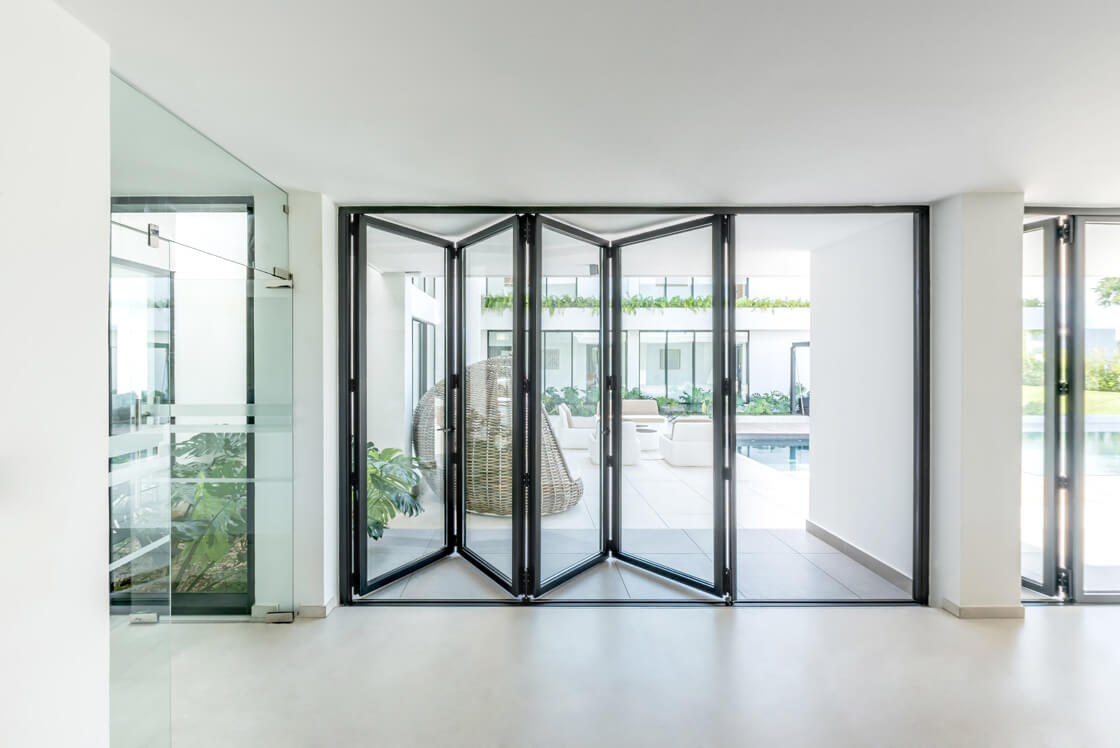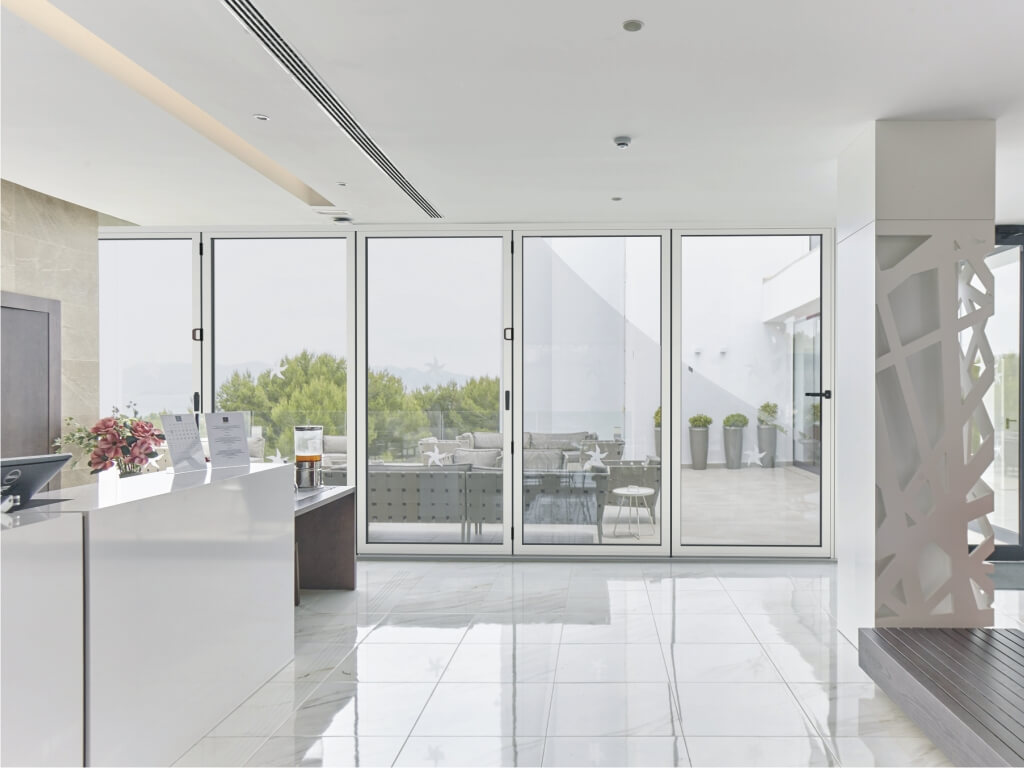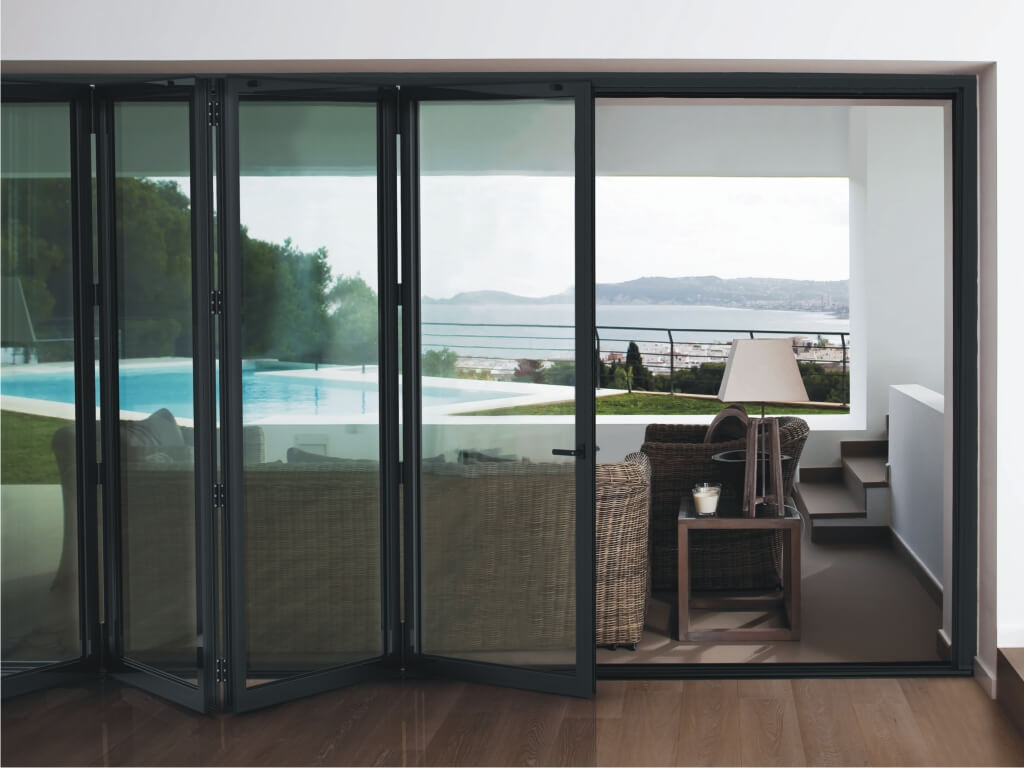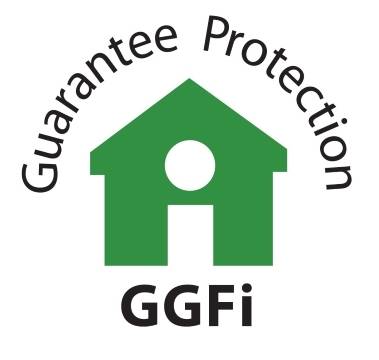We often find that homeowners are unsure of what type of glazing would work best for their aluminium bifold doors.
In this blog, we will look at the difference between double and triple glazing, and how to determine which could be the best solution for your home.

What are the benefits of triple glazed aluminium bifold doors?
We understand that triple glazed aluminium bifold doors can be a significant investment for homeowners, so we want to provide you with all the information you need to make an informed decision on which is the right glazing option for you. Here are some of the benefits of triple glazed aluminium bifold doors:
Improved Energy Efficiency
One of the most significant benefits of triple glazed aluminium bifold doors is their superior insulation properties. Triple glazing helps to reduce heat loss and save energy, keeping your home warm in winter and cool in summer. This can help to lower energy bills and reduce your carbon footprint. The slimline aluminium frame also adds to the overall energy efficiency of the bifold doors, as it is a good thermal conductor and prevents heat from escaping your home.
Increased Security
Aluminium bifold doors are inherently strong and durable, making them an excellent choice for enhancing the security of your home. Additionally, the triple glazing adds an extra layer of protection against forced entry.
Low Maintenance
Aluminium bifold doors are easy to maintain and keep clean, making them a practical and hassle-free option for busy homeowners.
Noise Reduction
Triple glazed aluminium bifold doors also offer excellent noise reduction capabilities, making them ideal for homes located in busy areas. The triple glazing can reduce external noise by up to 50 decibels, providing a peaceful environment for homeowners.
Durability
Aluminium bifold doors are known for their durability. They are resistant to rust, corrosion, and weather damage, making them a great long-term investment for your home.

What is the difference between double and triple glazing?
Double glazing is a type of window or door glazing that consists of two panes of glass separated by a gap. The gap between the two panes is usually filled with air or an inert gas such as argon. Double glazing provides better insulation than single glazing, as the gap between the panes of glass reduces heat transfer.
Triple glazing, on the other hand, has three panes of glass instead of two. The two outer panes are separated by an air or gas-filled gap, while the inner pane is closer to the middle and can have special coatings to improve insulation. Triple glazing offers even better insulation than double glazing, as the additional pane of glass reduces heat transfer even further.
So why might you choose triple glazing over double glazing? The extra pane of glass in triple glazing can provide a range of benefits, including improved thermal insulation, noise reduction, and increased security. Additionally, triple glazing may be a requirement in some building regulations, particularly for new builds or energy-efficient homes.
When considering glazing options for your windows and doors, it’s important to weigh the benefits and costs of each option and choose the one that best meets your needs, and our expert team of installers can help with advice on which solution is the right choice for you.

Should you have double or triple glazing in your aluminium bifold doors?
When it comes to aluminium bifold doors, both double and triple glazing can be suitable options. Triple glazing may be more beneficial in certain circumstances, such as if you live in an area with particularly harsh winters or if your doors face a busy road, whilst double glazing is less expensive, fits in most pre-existing frames and has a slimmer profile.
Ultimately, the decision between double and triple glazing for your bifolds will depend on your specific needs and circumstances.
Bespoke aluminium bifold doors across the South East, UK
If you have more questions about which aluminium bifold doors are right for you, we are on hand with our many years’ experience to help provide advice and recommendations for homes in Surrey, London and beyond. For more information on our wide range of home improvement products or installation process, please feel free to contact us. Look out for our factory showroom, coming soon to Slough.
Related blogs:
Is double glazing a good investment in London?
What are the main differences between uPVC and aluminium windows?








